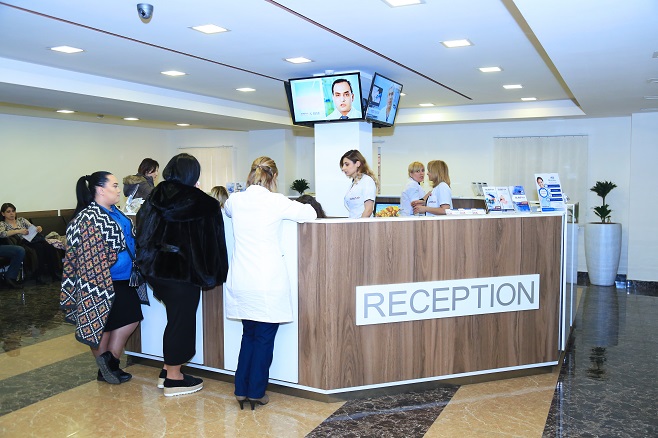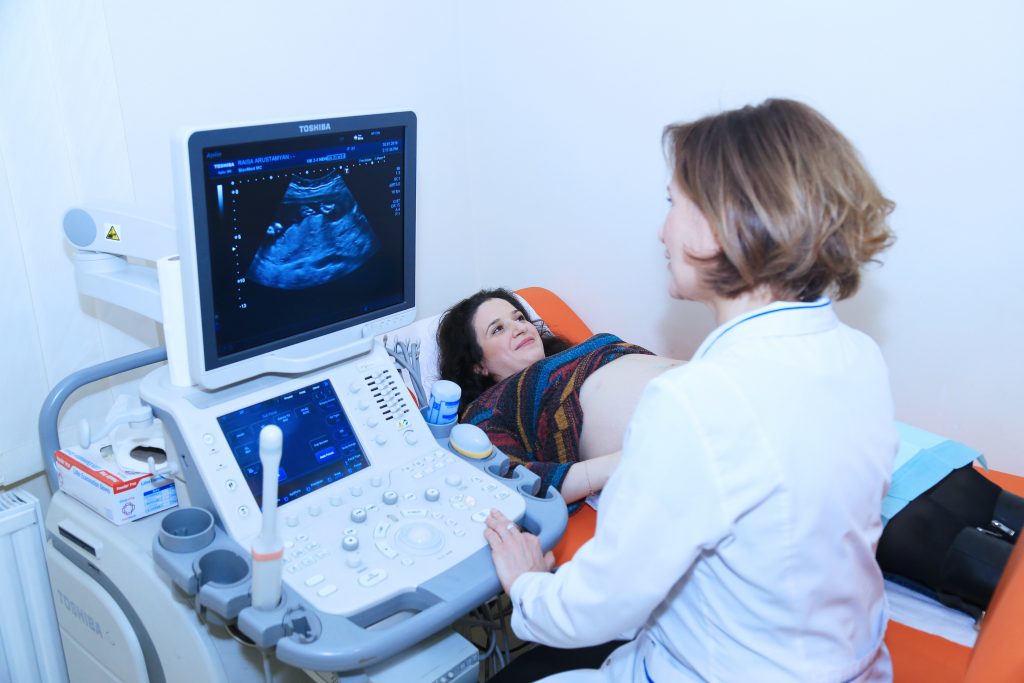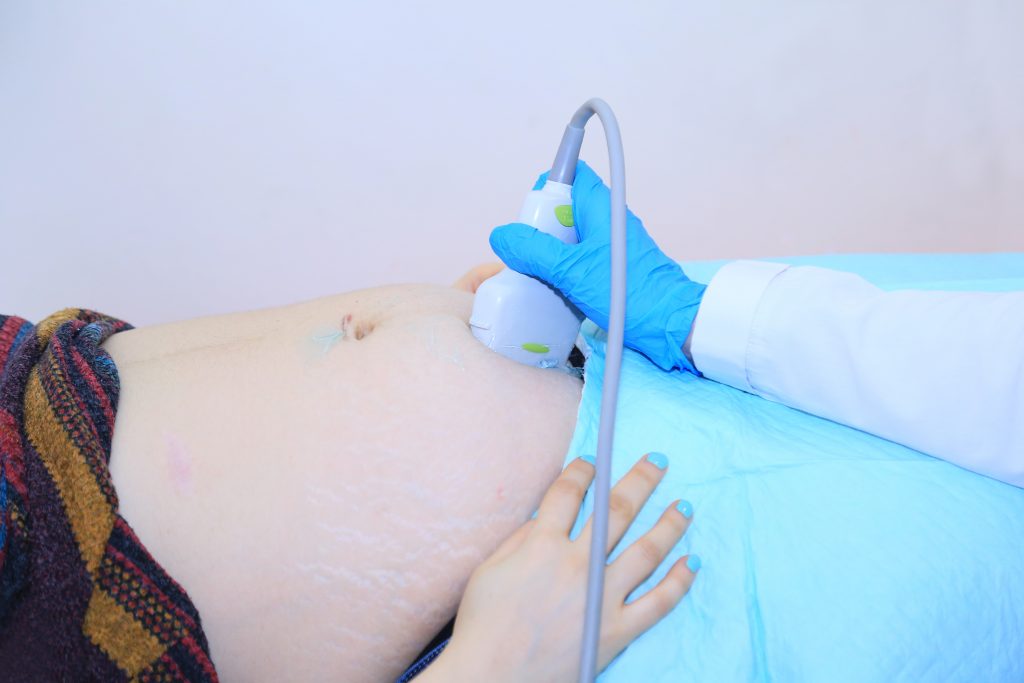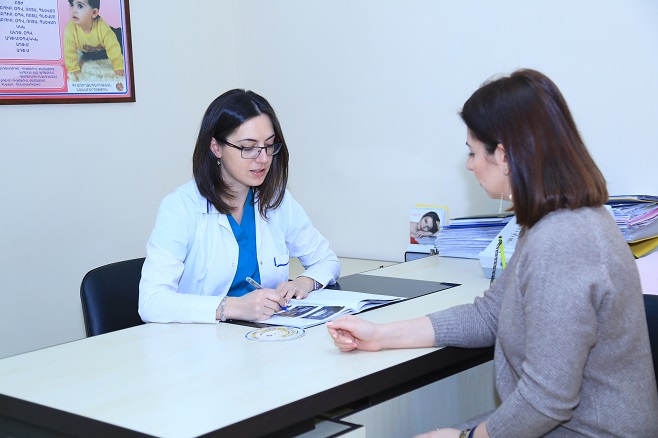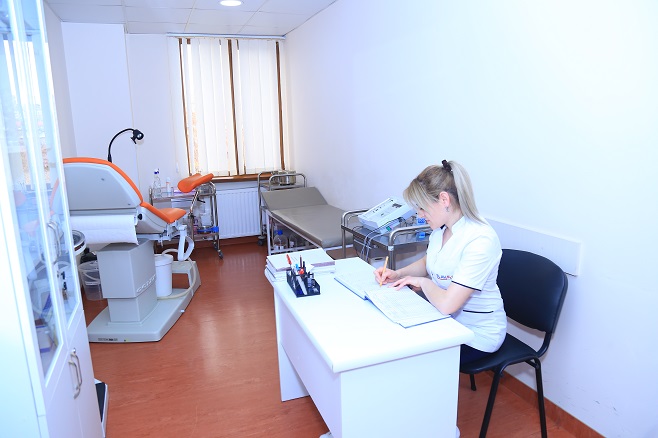Pregnancy registration process
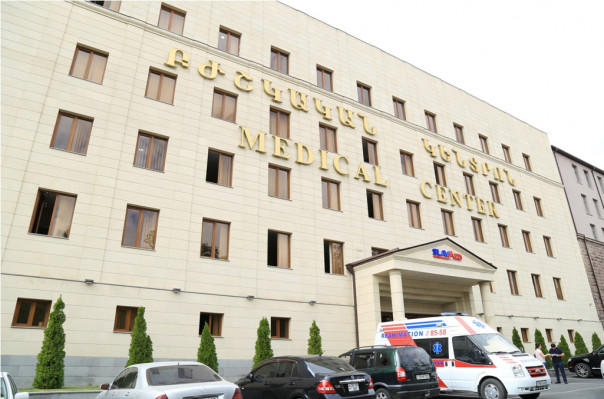
How does the pregnancy registration process work? What type of research is required during pregnancy and its purpose? Slavmed Medical Center’s gynecologist Verzhine Kasarjyan answered questions of NEWS.am Medicine.
The gynecologist remarked that after confirming pregnancy through the appropriate testing, the expectant mother should apply to the Women’s Consultation Department of Slavmed Medical Center to undergo an ultrasound examination in order to confirm the correct position of the fetus, its development and heartbeat of the zygote, as well as to monitor the course of pregnancy. After registering at Women’s Consultation Department, the expectant mother should undergo necessary laboratory and instrumental examinations to ensure safe pregnancy process and a healthy baby delivery.
Below we present the volume of laboratory and instrumental researches by trimesters, both for high-risk and low-risk pregnancy.
In the first trimester – weeks 11-14 of pregnancy, the expectant mother must undergo the first important screening targeted to discover any potential indications of possible chromosomal anomalies, and in case of abnormalities, undergo a biochemical examination aimed to estimate the risks of chromosomal anomalies. Interventions necessary during this period include the following procedures: pregnancy ultrasound, full blood count, blood typing and RH factor test, vaginal smear examination, common urine examination, glucose, urea, bilirubin, coagulogram, hepatitis B and C, syphilis, HIV/AIDS, therapeutic advice, ECG and, of course, free advice with narrowly focused specialist.
In the second trimester – weeks 18-22 of pregnancy, the expectant mother should undergo the second important screening aimed at thorough examination of the fetal structure and early detection of potential defects.
The required interventions during this period are as follows: ultrasound, and at 30 week-follow-up full blood count test, common urine examination, vaginal smear examination, glucose, urea, coagulogram, syphilis and therapeutic advice. Doppler examination is indicated at 26-30-weeks of pregnancy aimed to determine blood flow rates in uteroplacental umbilical and fetal vessels.
In the third trimester, weeks 32-34 of pregnancy, the third ultrasound screening is performed, aimed to get information on fetal weight, position, amniotic fluid volume, condition of placenta and, of course, preparations for the expected delivery. Procedures necessary during this period include: ultrasound, cardiotocography, full blood count, and common urine examination.
Verzhine Kasarjyan also mentioned that throughout the entire pregnancy, a pregnant woman will visit an obstetrician-gynecologist on any issue that may arise, ranging from psychological support to detecting pregnancy pathologies. The obstetrician-gynecologist also mentioned that in the maternity hospital all pregnant women (RA citizens) are given a temporary disability document and a state certificate on obstetric aid. “In order to organize a safe pregnancy and a healthy newborn delivery, you need to visit a doctor timely and perform all of the listed laboratory and instrumental researches. A healthy atmosphere in the family is of utmost importance.” The doctor assures that Slavmed Medical Center provides all the necessary conditions for mothers-to-be to make them feel comfortable. The maternity hospital fully complies with the European standards – latest generation of cutting-edge equipment, experienced staff, modern furnishings, comfortable hospital rooms, multifunctional beds, hygiene supplies and of course, a complete meal three times daily. Verzhine Kasarjyan completed her speech, saying: “Each woman registered with us, has the opportunity to choose a doctor who will monitor the entire duration of pregnancy, including the delivery and postpartum period. Obstetrician-gynecologists of the maternity home strictly adhere to existing pregnancy standards established by the MoH of RA, by implementing of all necessary digital and laboratory testings”. Also a reminder that every woman with Armenian citizenship residing in the city of Yerevan and in possession of a state sponsored delivery certificate, has a right to complimentary childbirth at Slavmed Medical Center.
